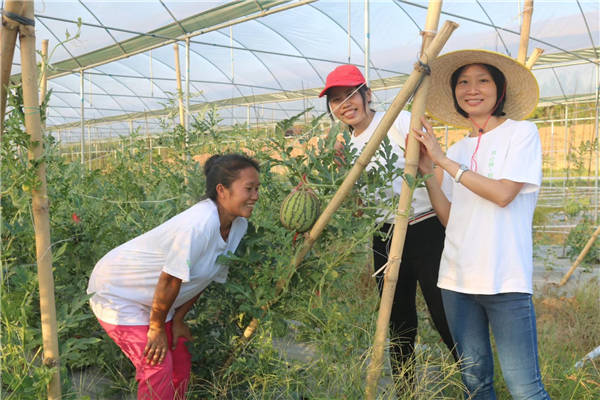NGO worker empowering women in villages


Foundation provides training, financial support and online assistance for the marginalized group, Zhou Jin reports.
They are often a neglected group when it comes to gender equality, female empowerment and many rural women, mostly between 45 to 60, are not well-educated.
Zou Weiquan is determined to help them discover themselves and promote their development.
While men and young women left the countryside and migrated to work in urban economies, older women remained in villages to take care of the households and work on the land.
Zou has been researching and empowering women in rural areas by carrying out various programs under a non-governmental organization for seven years.
"Sexual discrimination is a traditional issue rooted in history and culture, which cannot be easily changed", said Zou, who obtained a doctoral degree in anthropology and has worked for the Rural Women Development Foundation of Guangdong province since 2013.
She added that the situation is more pervasive and severe in rural areas as women there may not even realize that they are treated unequally.
Women who remain behind are a marginalized and vulnerable group, but they can also be an important force for the development of the countryside, Zou said.
"So we hope to mobilize them to do more things that could benefit the development of the village. And when they engage in the process, their voice will increase, which will help them achieve self-development to promote gender equality in rural areas," she added.
Zou worked for three years in a village, Leming, in north Guangdong province. It is isolated due to poor transportation links, lacking adequate resources, special agricultural products and social networks, Zou said, adding that these are the areas where NGOs can play a vital role.
Through providing skill and technical training as well as financial support, Zou mobilized the "sisters "in the village to apply an ecological model for farming.
The foundation showed them how to process agricultural products and some women even began running a small restaurant for visitors, mostly hikers.
Zou also reckons that helping rural women is not just about finding them a way to make a living, but also attempting to satisfy their mental needs.
In addition to material support, the foundation also built online communities among the women for communication, teaching online courses on gender issues, and organized activities such as reading and writing.
The communities have gathered nearly 10,000 members.
The foundation also launched a project to encourage rural women to carry out public activities in their villages, including gender equality knowledge, child education, helping the elderly and environmental protection.




































